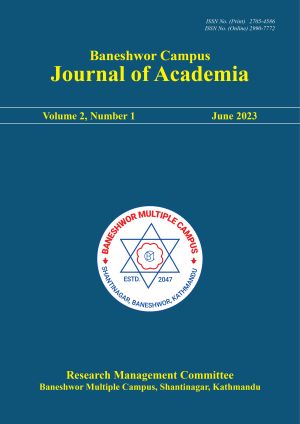Case Report of Suicide Attempt Using Zinc Phosphide in Nepal
DOI:
https://doi.org/10.3126/bcja.v2i1.55762Keywords:
Suicide, Zinc Phosphide, Intensive Care MonitoringAbstract
Zinc phosphide is an easily available rodenticide and a common mode of poisoning in the Indian subcontinent. It is highly toxic with a mortality rate ranging from 37-100 percent. The proposed mechanism of toxicity is due to the release of phosphine gas after contact with gastric acid. The gas thus liberated, inhibits cytochrome C oxidase and oxidative respiration. The affected systems are cardiovascular, respiratory, gastrointestinal, hepatobiliary, and hematologic systems and cause electrolyte imbalance. Additionally, metabolic acidosis and an increase in lactate levels can be correlated with the degree of toxicity. The onset of effects can be as early as 4 hours and the risk gradually decrease after 72 hours. There is no antidote to the poison.
Aggressive intensive care monitoring and supportive management are the only methods. Early gastric lavage with activated charcoal to induce vomiting is advised. Attempts to clear the zinc phosphide early from the lumen with evidence in the X-ray abdomen using Castor oil have been tried, showing a beneficial effect. Along with this, antioxidants such as alpha-lipoic acid and injectable magnesium sulfate can prevent oxidative injury. Early use of Vitamin K and use of N-acetyl-cysteine have been used to prevent and treat liver injury. However, these methods have not been incorporated in the standard treatment regimen but have shown positive results in preventing mortality. Further extensive studies and standardized treatment is needed for Zinc phosphide poisoning.
Downloads
Downloads
Published
How to Cite
Issue
Section
License
Copyright (c) 2023 RMC Baneshwor Multiple Campus

This work is licensed under a Creative Commons Attribution-NonCommercial 4.0 International License.
CC BY-NC: This license allows reusers to distribute, remix, adapt, and build upon the material in any medium or format for non-commercial purposes only, and only so long as attribution is given to the creator.





